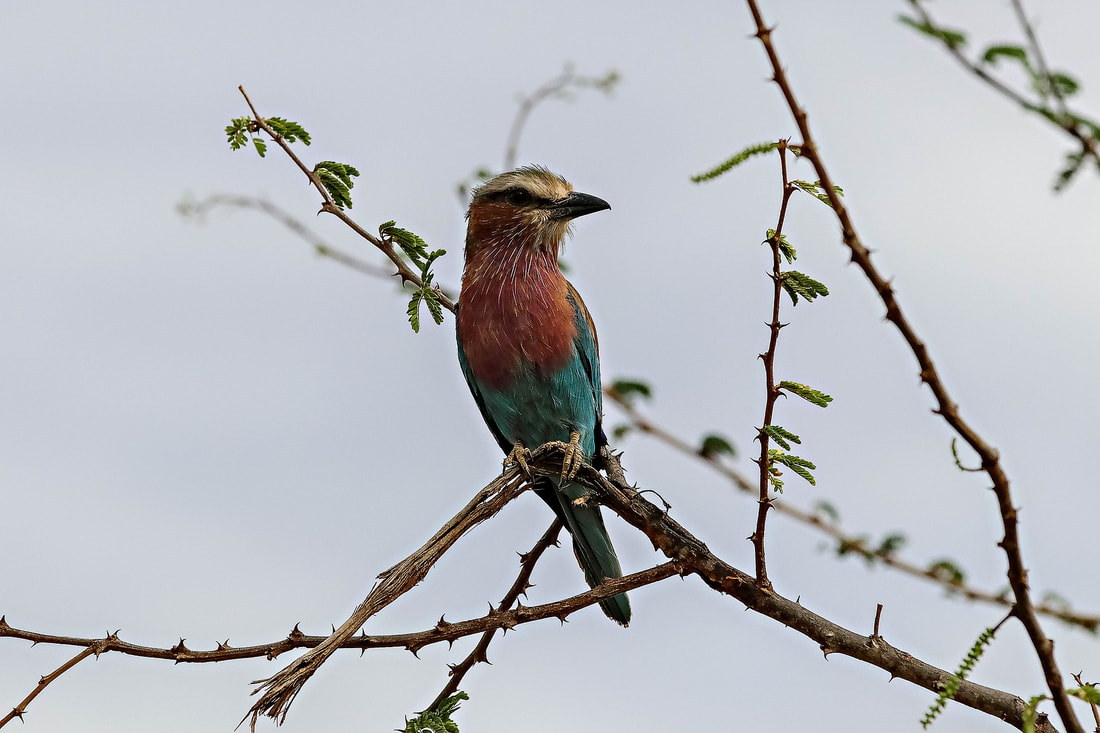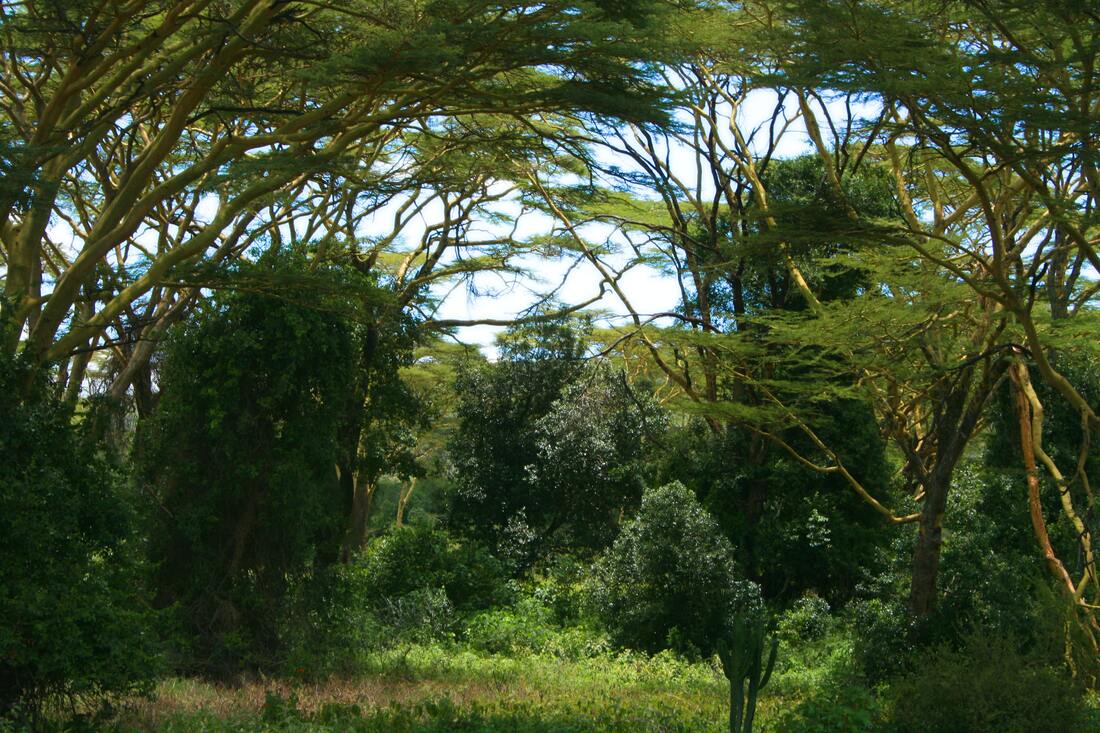|
The Ogiek - Honey hunting and beekeeping in Kenya
The Ogiek live in the Mau Forest, which is located in the Rift Valley of Kenya. Ogiek translates as ‘the caretaker of all plants and wild animals’. As hunters-gatherers, they traditionally practiced migratory beekeeping in log hives (muiynget), that were moved through the territory according to the seasonal flowering period. These logs, made of red cedar wood, were hung from tall trees. Traditionally, beekeeping was only practiced by men, especially the community’s elders. A bundle of sticks called sasiat was used to smoke out the bees during the harvest. The hunters would always leave enough combs in the hives to encourage the bees to stay. The Ogiek also gathered honey from bees that nest in the ground, using bee-eating birds to guide them to the nests. As the bees migrated during the dry season, the people would follow them. |
Honey was a main subsistence food for the Ogiek and thus permeated their culture and identity. It was used for brewing traditional honey mead (rotikap gomek), as a natural preservative for wild meat and an ingredient for medicinal preparations. It was also traded with neighbouring communities. Honey played an important role in traditional rituals such as circumcision rituals, marriage ceremonies. Even today, honey is also used as a dowry payment. Honey also has medicinal values and was given especially to children and older people.
|
The Ogiek were displaced by British colonial rule, which promoted large scale extractive activities over traditional economic activities. This development has been exacerbated in the 1990s with public and private initiatives clearing the forest and replacing the local plants with exotic plantations for timber production. As a result, many Ogiek were forced out of the forest and had to abandon their ancestral land and the traditional beekeeping system. In recent years, the Ogiek have reclaimed their land through legal proceedings and efforts have been made to revive traditional beekeeping. Today, many Ogiek – men and women – practice beekeeping, often using the traditional log hives as well as Western-style hives with movable frames.
|
Ogiek honey is mainly produced by small black African honey bees, (Apis mellifera monticola) that prefer the nectar of the flowers of the Dombeya goetzeni plant. These flowers give the honey its unique flavour. The honey varies in colour depending on the season in which it is collected: in August it is white-grey, in December it is slightly yellow and honey gathered in February and April varies in colour from reddish to almost black. Since 2015, Ogiek honey is even promoted by Slow Food International! Check out this short documentary to learn more about the Ogiek and the importance of beekeeping for forest conservation in Kenya.


